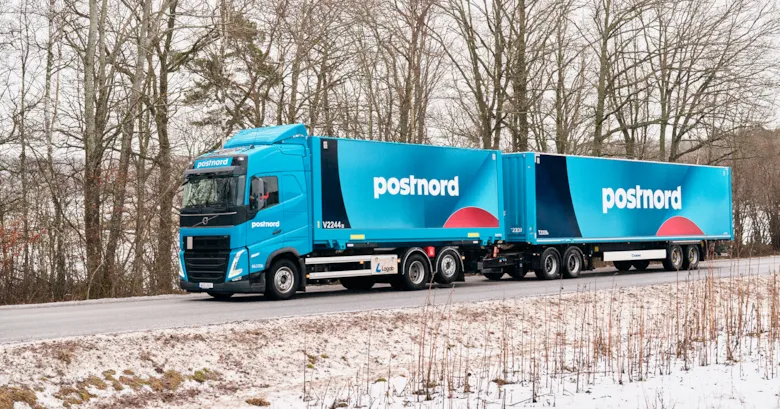Fossil-dependent companies won’t survive
When a company with 30,000 employees and 10,000 vehicles decides to become fossil-free, the impact is significant. Not only does it position us as leaders in the industry, but it also strengthens our business.
PostNord’s journey towards a sustainable future was inspired by history. Just as President John F. Kennedy outlined his ambitious goals seven years before the moon landing, we too sought to push the boundaries of what was possible. This marked the beginning of PostNord's heightened sustainability ambitions.
"We talked about 'man on the moon' to describe our ambitious alternative for PostNord's climate transition," says PostNord's President and Group CEO Annemarie Gardshol.
Taking the lead in the industry
In 2022, we launched our group-wide sustainability agenda. The goal was ambitious. By 2030, PostNord operations should be fossil-free.


"At the time, it felt like a challenging goal. But it was necessary if we were really going to be climate leaders. The idea was to try and extend ourselves a bit further than what might be expected of us. Then we started talking about 'man on the moon'. Today, it makes me happy to know we set a very important goal that we are on our way to achieving. Moreover, it’s also in line with the demands our customers place on us."
The overall climate goal is supported by sub-goals. By 2025, PostNord's emissions must be lowered by 40 percent compared to 2020.
The goals are lofty – and they should be, according to Gardshol.
"I think people should have high expectations for a company like PostNord. And I also think it is great knowing that we can live up to these expectations. We get proof of that over and over again."
PostNord's climate agenda was later supplemented with two science-based targets approved by the Science Based Targets initiative. This involves reducing greenhouse gas emissions in line with the latest climate science to help achieve the Paris Agreement.
Change for an industry that’s part of the problem
"I have known almost my whole life that I want to work with sustainability," says Amanda Jackson, Head of Group Sustainability at PostNord, who comes with years of experience from larger companies.
"My motivation for working together with others on sustainability issues is the opportunity to participate in, and create societal change that I believe in. That is one of the reasons I am here. But it is also fun to be in an industry that is part of the problem because then you get to be part of the solution. This is where the transition needs to happen," says Jackson.
Influence beyond our own vehicle fleet
The group employs over 30,000 people at around 500 workplaces and operates more than 10,000 vehicles. That means when PostNord decides to change, the change is large-scale and makes a significant impact.


"What we do within PostNord is important because we are large enough to exert influence. In addition to shifting our own vehicle fleet, we can influence our partners to do the same. In this way, we can work together to create a transition that is significantly greater than the one we carry out ourselves," says Jackson.
The work is carried out through the group-wide transformation program Green By PostNord, which aims to accelerate the transition from fossil dependence to fossil independence.
"Green by PostNord ensures that PostNord's climate transition happens quickly, efficiently, and successfully. We have made great strides recently, especially when it comes to the transition of our own vehicle fleet,” says Jackson.
At the same time, subcontractors account for a large part of our total emissions. Thus, collaboration with transport providers is crucial for the transition and an important part of the work within Green By PostNord.
"We work with stakeholders both inside and outside our industry to create greater change," she adds.
Fossil-dependent companies won’t survive
Ultimately, PostNord’s transition is about survival and success. Gardshol is convinced that fossil-dependent companies will not be able to survive.
"Sustainability is business-critical and is therefore a high priority. After all, this is about ensuring that we are relevant to our customers and competitive in the future. Our customers also have very ambitious sustainability agendas and are counting on us to help them achieve their goals,” says Gardshol.
"One thing is certain: when you are a company of our size, you have to be dedicated because you put large forces in motion. It must be for real; otherwise, you might as well not bother. We are going to the moon and back."